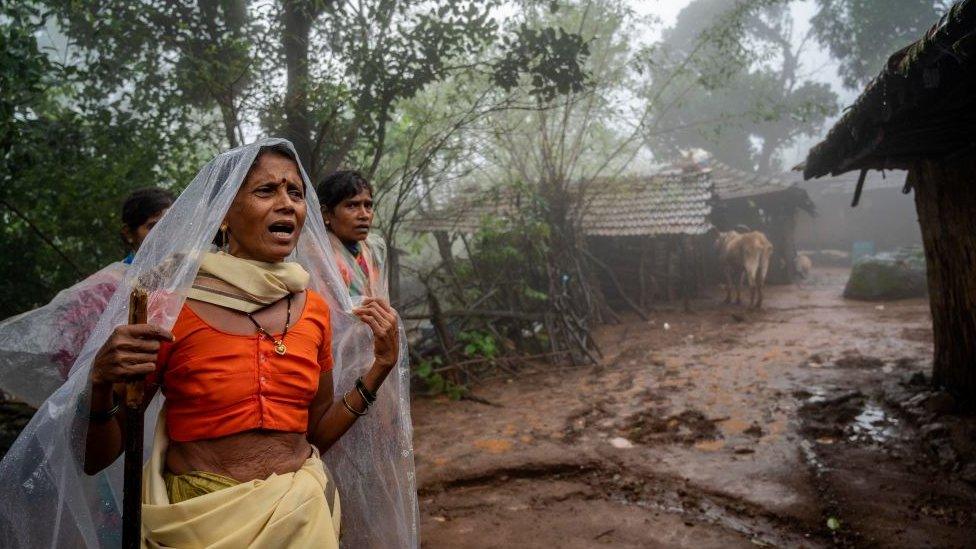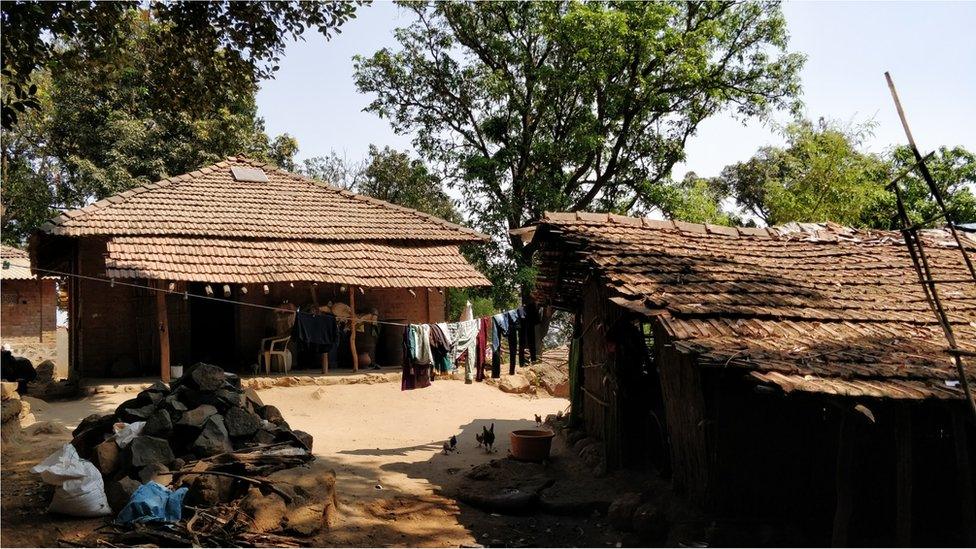Raigad: Dozens still missing as India landslide search called off
- Published

A villager who lost many relatives in the landslide
Indian authorities have called off efforts to find survivors four days after a deadly landslide hit a village in the western state of Maharashtra.
Twenty-seven bodies were found while 57 people are still missing after the landslide, which occurred in Irshalwadi village in Raigad district.
Rescue efforts were hindered by the tough terrain and heavy rain.
The decision was taken after talking to the Raigad administration and other authorities, a state minister said.
The landslide, which took place on Wednesday night, flattened several homes in the village, which is located halfway up the slope of a steep mountain called Irshalgad.
The mountain range, which is part of the Deccan Traps (a volcanic province), was formed over 60 million years ago, says Janhavee Moole from BBC Marathi.
"It's difficult to reach and the terrain is considered risky even for seasoned trekkers," she says.
Rescue operations were complicated by the terrain - which was slippery due to ongoing rains - as well as due to the fact that mud was continuing to fall on the teams.
"Rescuers had to climb for about two hours to reach the spot every morning. By the second day, rescuers and locals had realised that it would be difficult to continue the operation for longer," Moole says.
Officials said last week that much of the mud had to be cleared manually as it was hard for heavy machines such as JCBs to reach the spot.

A view of Irshalwadi village in 2018-19
Several states in India have experienced heavy rainfall over the past few weeks, triggering floods and landslides. India's weather department has predicted more rains in parts of Maharashtra state, including Raigad district, where schools were closed on Monday.
According to government data, there were 43 houses in the village, where 228 people lived. Around 144 people have either been rescued or were away from Irshalwadi at the time of the disaster.
Locals and people involved in rescue efforts told BBC Marathi that only around four to five houses are still standing in the village.
The people in the village belonged to an indigenous tribe and made a living by foraging in the forest and some agricultural activities, says Moole, who grew up near the area.
She spoke to mountaineers who often climbed the Irshalgad mountain and remember the village and its inhabitants fondly.
Santosh Dagade, who has climbed Mount Everest, said he often trekked up Irshalgad and was served tea and snacks by the villagers. After the news of the landslide, he went to help and found that except for a few houses, "the entire village was buried under the ground".
"I couldn't believe my eyes. I started trying to find familiar houses. There was despair everywhere," he told Moole.
Survivors are currently staying in temporary shelters nearby.
A woman who survived the landslide told BBC Marathi that she was sleeping when the landslide hit.
"We woke up when our mother screamed. When we ran outside there was no one there. The entire village was covered in mud," she said.
With all their possessions and documents buried under the mud, she said the biggest question they are facing is what to do next.
BBC News India is now on YouTube. Click here, external to subscribe and watch our documentaries, explainers and features.

Read more India stories from the BBC:
